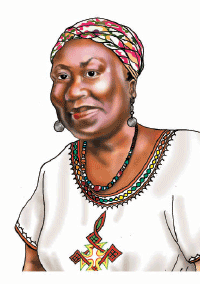The 21st International AIDS Conference held in Durban, South Africa, from July 18 to 22, 2016, providing a platform for interaction on a wide array of development issues concerning Africa, well beyond the advertised focus on the Acquired Immune Deficiency Syndrome (AIDS). It represents a golden opportunity to review some of the expectations for the continent which had been identified at the beginning of the year. For example, the 2016 issue of Foresight Africa, a yearly report published by the Brookings Institution, had identified “six overarching themes” which African nations should contend with and effectively bring under control in order to effectively move in the direction of sustained development. The report’s tone expressed a sense of urgency, which was conveyed in the declaration that 2016 marked a “tipping point” for Africa.
We examine those themes, beginning with a quote from the report’s introduction which sums up the challenges facing the African continent and gives an indication of how they could be overcome:
Africa is at a tipping point in 2016. Despite all the success the continent has achieved in recent years, new and old dangers –economic, political, and security-related – threaten to derail its progress. With sound policy-making, effective leadership, and enough foresight, however – Africa can meet and defeat these challenges as well as the many more to come.
The very first challenge, as would be expected, is that which concerns the economy, and it has to do with the need for African nations to effectively “manage economic shocks”. The decline in commodity prices like crude oil and the slowdown in China (when China sneezes, the rest of the world catch a cold!) are some serious shocks that African nations have to contend with, and they are already having an impact on African economies – the impressive growth rates witnessed in recent years have begun to slow down. How do we keep our heads above water in an external environment over which we do not have much control? During her visit to Nigeria barely a week into the new year, the International Monetary Fund (IMF) chief, Christine Lagarde, reiterated the importance of diversifying our revenue base and ensuring greater efficiency in revenue collection (like taxes).
The second challenge identified is that of sustaining domestic growth. For African countries to truly develop, attention must be paid to industrialisation, for that is what creates jobs. We cannot continue to export our jobs in the form of raw materials, without any form of transformation or value addition. It is a shame that we export timber, only to import furniture and toothpicks from China! Third, and this challenge is closely tied to the preceding one, it is going to be crucial to support human development. Certainly, when more people have well-paying jobs, the incidence of poverty will decline. It is claimed that there has been some reduction in poverty levels on the continent in recent years, but significant change still remains to be witnessed in several other areas, like health and education. Some countries still have a long way to go in ensuring equality among all their citizens and also in reducing the incidence of violence in their society.
As Africa continues to witness massive movements into the urban areas, how can we capitalise on this development? Planning, infrastructure development, and raising the finances to cater for the services needed by the inhabitants of our rapidly growing cities and megacities have become real challenges. Historically, urbanisation is known to have facilitated the transition of other regions of the world from agrarian societies to industrialised ones, and this should be possible for African nations too, if only our governments would demonstrate the resolve required to deliver services, build the necessary infrastructure and support the urban poor.
The fifth challenge identified is that of maintaining the gains of governance. Many African countries have experienced economic growth in recent years, as has been said, but has this brought about a transformation of those societies economically? Is the bulk of the money concentrated in the hands of a very small minority? What are the tangible gains that the generality of the populace can point to as a result of the democratisation processes which have occurred in their countries? This year 2016 will witness some more governance milestones (elections in Uganda and the Democratic Republic of the Congo; election of the African Union chairperson); what will they mean for the generality of Africans, and what institutional changes will be made to help them attain economic transformation?
Finally, the challenge of expanding African trade is underscored, which might be achieved by creating a comparative advantage through the strengthening of regional partnerships. The hard fact is that the structure of global trade is changing, and Africa must find a way to attain and maintain competitiveness, for example, in the face of the Trans-Pacific Partnership Agreement involving 12 Pacific-rim countries and which, it is generally believed, is set to change the architecture of global trade. It is suggested that African countries should effectively utilise the African Growth and Opportunity Act (AGOA) to their own regional advantage.
We are more than halfway into 2016, and whether the year ends up being a tipping point for Africa or not, there is no doubt that the challenges which have been identified are real and urgent ones. One can only hope that Nigeria, given the current efforts at stemming corruption which has kept her down for so long, will now rise up to confront these challenges, and in so doing take her rightful place as the true giant of Africa.







